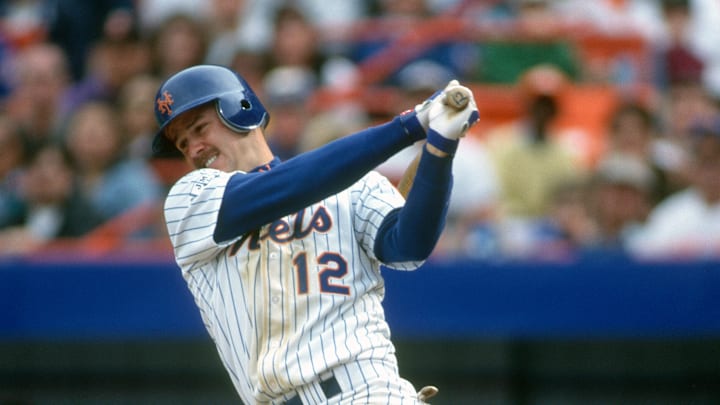
One-time New York Met Jeff Kent is probably the biggest headscratcher of all.
Kent, who spent five years with the Mets, hit .291 over his career, banging out 2,461 base hits including 366 homers while driving in 1,467 runs. Kent was a dominant force at the plate, and served as the protection for Barry Bonds in the San Francisco Giants line-up for a number of years. He played for multiple teams and was successful wherever he put on a uniform.
During a nine-year span with the Giants (six seasons), with the Houston Astros (two seasons), and his first season with the Dodgers, Kent dominated at the plate when he hit for a .295 average with 28 home runs and 110 RBI. He won four Silver Slugger Awards, he was selected to play in five All Star Games, and he was the National League’s Most Valuable Player in 2000.
So why the snub? Given his numbers, given his longevity, given his quiet yet hard-nosed, old school approach every game, every season, how does he not rate with the second basemen who are in the Hall of Fame?
Of the second basemen in the Hall, not one has more home runs than Kent, and only Nap Lajoie, elected in 1937 (1,599 RBI) and Rogers Hornsby, elected in 1942 (1,577 RBI) have more RBI. Hornsby is the only one with a higher slugging percentage (.577 to Kent’s .500).
Kent is probably most favorably compared to Ryne Sandberg. Elected in 2005, Sandberg hit .285 with 2,386 hits, including 282 home runs with 1,061 RBI. Sandberg was a 10-time All Star, won nine Gold Gold Glove Awards, seven Silver Slugger Awards, and won one MVP Award. While Kent had superior offensive stats, Sandberg had an edge defensively.
The same could be said in comparison to Joe Morgan. Morgan, elected in 1990, hit only .271 but had an OBP of .392 as he walked over 1,800 times. He hit 282 home runs and drove in 1,061 while collecting 2,386 base hits. He was a 10-time All Star, won five Gold Glove Awards, one Silver Slugger Award, and won back-to-back MVP Awards. Again, Morgan had the defensive edge on Kent.
Then this is where you have to question what the voters are thinking. Bill Mazeroski, who hit one of the most famous home runs in World Series history against the Yankees in 1960, was elected in 2001. He batted .260 over his career with an OBP of .299, collecting 2,016 hits. He hit a total of 138 home runs and drove in 853. Mazeroski was selected to play in 10 All Star games (three times he played in both games during the season).
The rationale that Mazeroski was so great with the glove – he won eight Gold Glove Awards - that he just HAD to be elected.
So this all begs the question…why is Kent not given serious consideration? His offensive stats are not only comparable to his contemporaries, they are better. Was his fielding so bad that it so outweighs his offensive prowess that someone like Mazeroski, with far inferior offensive stats, could draw more interest from the voters than he could…or should?
Whether it be the Baseball Writers Association or any variation of any of the “veterans committees” now sitting, the voting will all be way too subjective. Standards? Criteria? Seems pretty obvious that objectivity either doesn’t or, possibly, can’t exist when it comes to electing players to the Hall of Fame.
That certainly seems to hold true for the three one-time New York Mets Billy Wagner, Keith Hernandez, and Jeff Kent. The credentials are there. But what’s it going to take?
